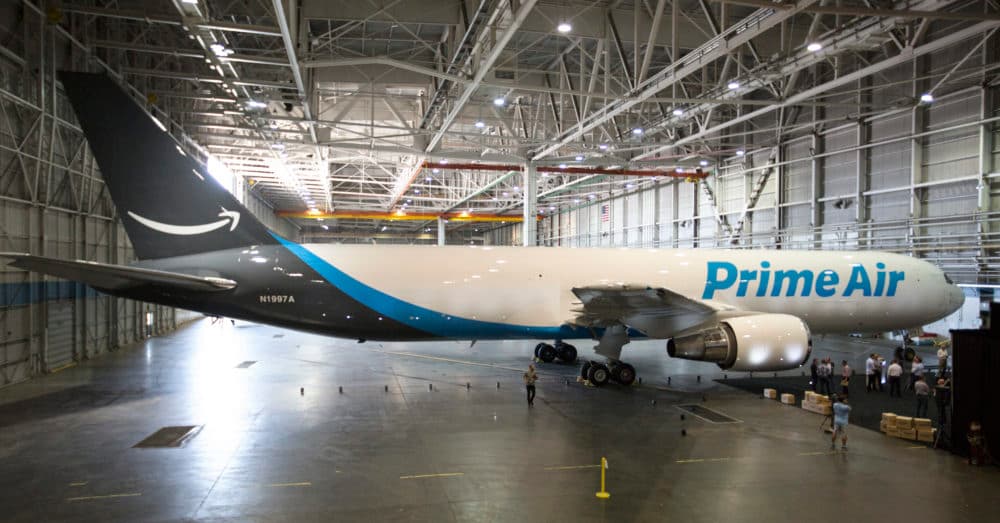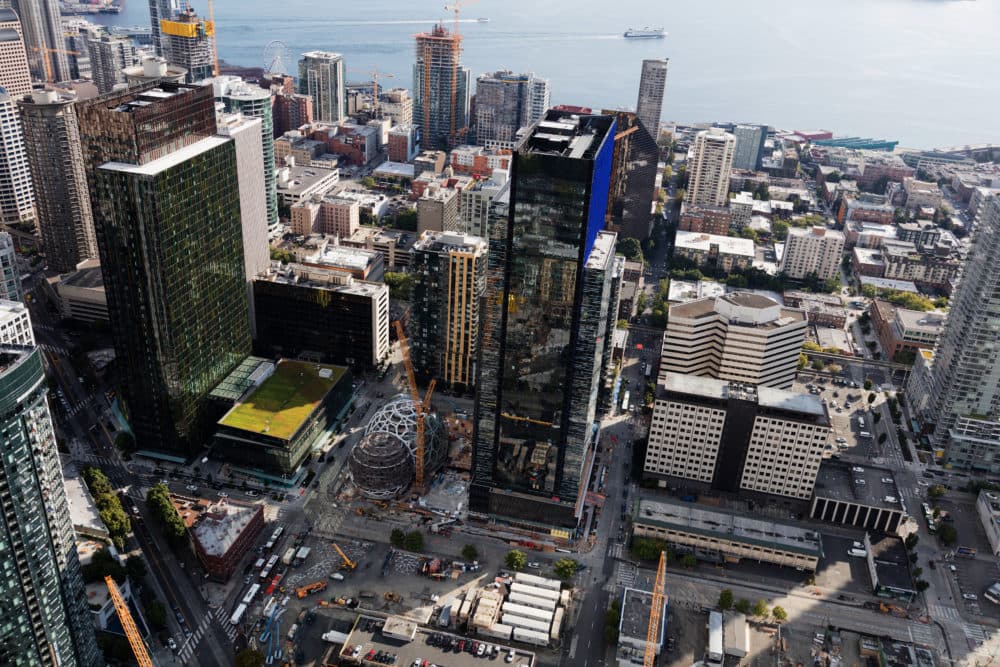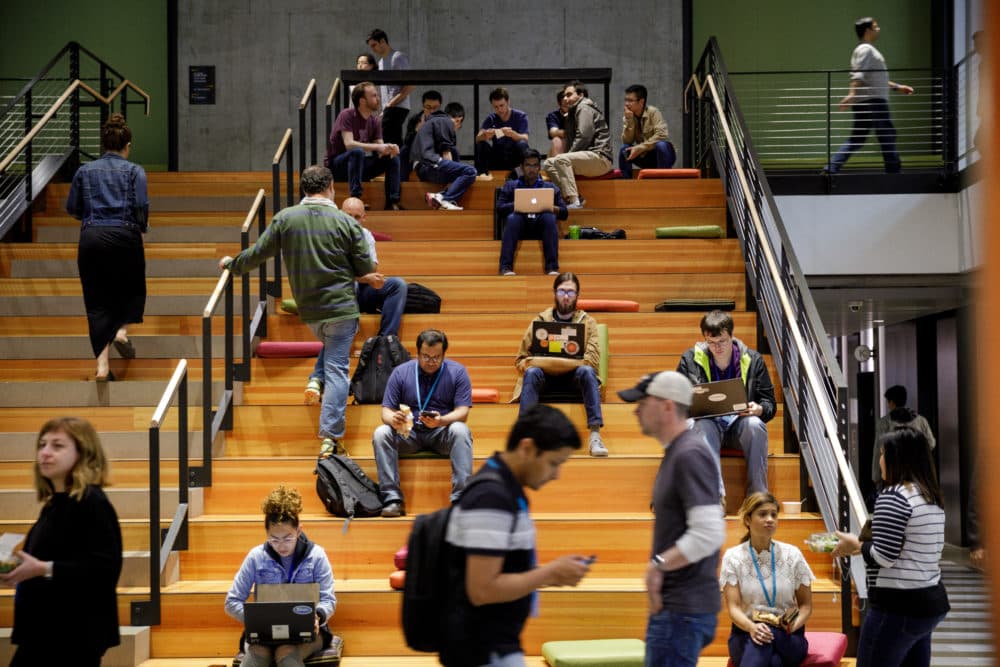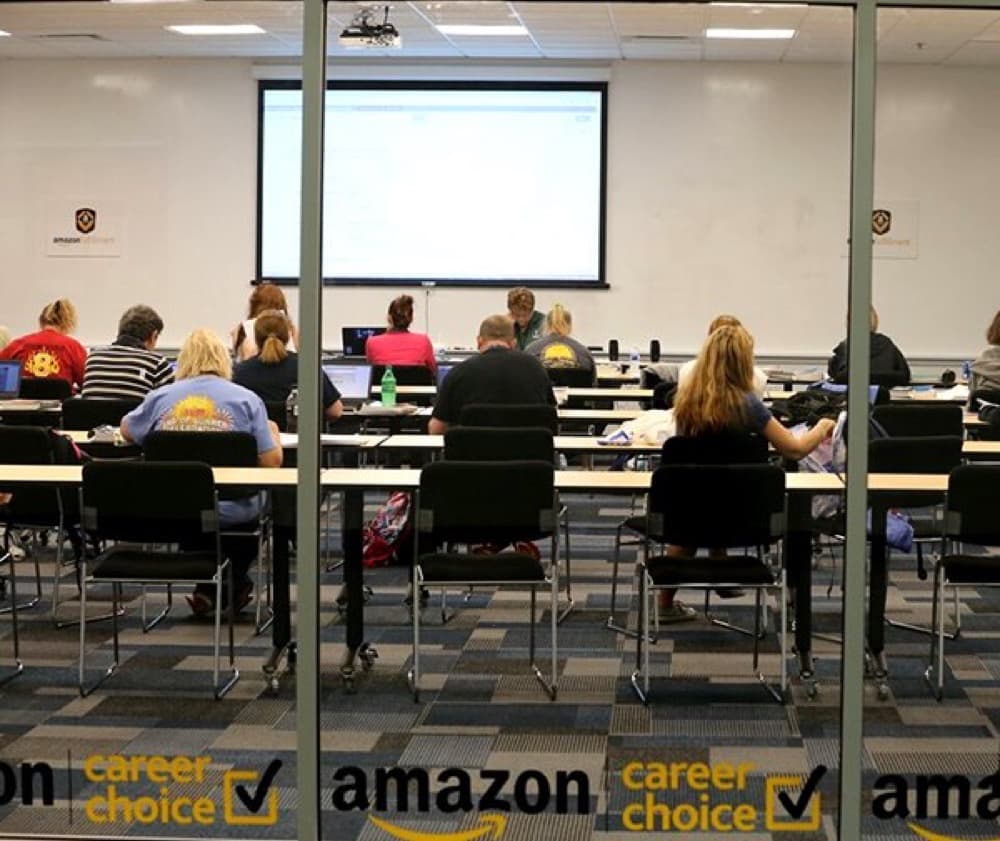
Even Denver-area economic development organizations are having trouble getting details about Colorado's bid for Amazon's new headquarters.
What locations, incentive packages and other details Colorado is highlighting for Amazon are expected to remain secret even after state officials submit their official proposal to the Seattle-based e-commerce giant sometime next week.
The secrecy around the deal is causing tension for at least one business group hoping to attract Amazon to its territory, the Aurora Economic Development Council.
"We're really in the dark at this point," said Andrea Tilliss, marketing manager for the Aurora EDC. "We're learning stuff from the press."
The Aurora EDC works with companies considering the city of Aurora. The group previously helped land the Amazon fulfillment and sortation centers that opened in the city within the last two years.

What we know so far
Municipalities and economic development groups were asked to provide sites that fit what Amazon is looking for as well as incentives they could offer to the state and to the Metro Denver Economic Development Corp. The state and economic development organization are expected to consolidate all the information into one final proposal to be sent to Amazon.
About 30 sites were submitted to the state within seven of the nine counties in the greater Denver metro area. Eight of those sites fit all the criteria set by Amazon, including proximity to the airport. The eight locations are expected to be included in the final proposal with no particular site receiving top billing, according to J.J. Ament,
CEO of Metro Denver Economic Development Corp.
Ament declined to provide any details about the fateful eight locations.
"People are all excited about the sites. The reality is this proposal is certainly going to include our real estate opportunities throughout the region. We're not emphasizing one site over another. There are multiple locations that meet and exceed the criteria. All of those will be presented to Amazon and ultimately it's for them to choose a location, not for us to choose it for them," Ament said.
"Everybody is all jazzed up about the real estate. But during this first phase, I believe personally, it's going to be workforce, it's going to be higher education, timezone, geography, quality of life. Those are the decisions and criteria that are going to move us to future rounds of consideration more than any particular real estate site," he added.
The reason the public even knows Colorado is going after Amazon is that the company announced to the world on Sept. 7 that it’s looking for where to build its second headquarters or HQ2. The facility, Amazon said, would employ as many as 50,000 people — which would put it on par with the town of Parker — and bring more than $5 billion in construction and operations investments.
Amazon is expected to make its site selection decision sometime next year. It's unclear when.

Why the secrecy?
Amazon asked governments bidding for HQ2 to sign nondisclosure agreements barring information about the company's plans from being released to the public. It's hard to say even the type of information Amazon wants to keep secret since the NDA itself won't be made public.
Denverite requested a copy of the nondisclosure agreement from the Colorado Office of Economic Development and International Trade on Sept. 21. The state said that we would need to ask Amazon for the document since "it is their legal property."
Amazon later denied the request, leaving states to interpret the NDA and release information they deemed unprotected.
"We don't want to do anything that impairs Colorado's ability to win nor do we want to do anything that might impair Amazon's ability to easily execute whatever plan they have," Ament said. "Traditionally, documents covered by confidential agreements include the document requesting the confidentiality. That's my understanding, and that's what we're honoring."
Even economic development groups haven't seen the NDA, and they don't know if any of the sites they submitted made into the final eight Colorado plans to submit.
"Basically, we handed everything off, and we are just kind of waiting at this point. We are just sitting in limbo," Tilliss said. "We have not been told whether or not we will know if our sites will be submitted."
The Aurora Economic Development Council has looked at three different NDAs for Amazon's facilities in Adams County.
"The NDAs that we have say don't divulge anything about Amazon's plans or incentives or anything along those lines that could jeopardize the project or the company," Tilliss said.
But other details about proposed sites and offerings can be made public, she said.
For Aurora, it boils down to a lack of communication around one of the largest and must public company expansions in recent history.
"Everyone is on board with the primary goal of bringing this company and bringing this headquarters to Colorado. There's no doubt about that among any of the cities in the state," Tilliss said. "As long as we keep our eye on the prize, and we make sure we're communicating, this partnership and this opportunity could really come together."

Cities can talk
Although Ament doesn't recommend they do, local governments can talk about what they sent to the state regarding the Amazon proposal, he said.
"Any local economic developer is welcome to talk about the potential sites within their community that they believe would qualify or that they have submitted to us," Ament said. "We're just not going to do that."
Aurora submitted an undisclosed number of sites to the Metro Denver EDC, primarily near Denver International Airport and the R Line, according to the Aurora EDC. Broomfield also put forth sites near Interstates 25 and U.S. 36, said Bo Martinez, director of economic development for the city. Lakewood did not submit. Denver did but would not give any additional information.
"We are not in a position to release information related to any preliminary site submittal related to an ongoing recruitment process at this time," the Denver Office of Economic Development wrote in a statement. "In addition, often there are sensitivities around specific property sites, as well as proprietary information from landowners and developers related to those sites."
The process Denver, Broomfield, Aurora and the state are following for Amazon is not unusual. Several companies work with the economic development officials each year to learn about opportunities in the region. Usually, those companies' identities are kept under wraps and often referred to by code names when talked about in public meetings.
"Amazon certainly has the most attention but we're currently working with 80 different companies about relocation, expansion and retention efforts for the region," Ament said. "They get a lot of attention but this is the work that the Metro Denver EDC does every day."
Subscribe to Denverite’s newsletter here.
Business & data reporter Adrian D. Garcia can be reached via email at [email protected] or twitter.com/adriandgarcia.












